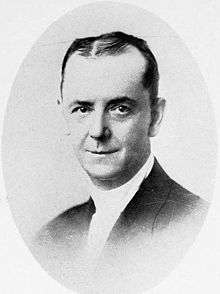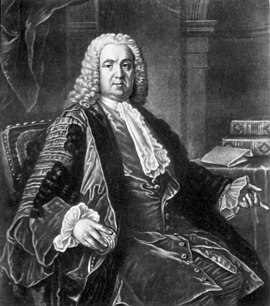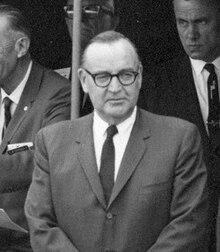February 16 is the 47th day of the year in the Gregorian calendar. There are 318 days remaining until the end of the year (319 in leap years).
Holidays
- Christian feast day:
- Kim Jong-il’s Birthday (North Korea)
- Restoration of Lithuania’s Statehood Day, celebrate the independence of Lithuania from Russia and Germany in 1918 (Lithuania)
History
In 116, Emperor Trajan sends laureatae to the Roman Senate at Rome on account of his victories and being conqueror of Parthia.
In 1249, Andrew of Longjumeau is dispatched by Louis IX of France as his ambassador to meet with the Khagan of the Mongol Empire.
In 1270, Grand Duchy of Lithuania defeats the Livonian Order in the Battle of Karuse.
In 1630, Dutch forces led by Hendrick Lonck capture Olinda in what was to become part of Dutch Brazil.
In 1646, Battle of Torrington, Devon – the last major battle of the first English Civil War.
In 1699, First Leopoldine Diploma is issued by the Holy Roman Emperor, recognizing the Greek Catholic clergy enjoyed the same privileges as Roman Catholic priests in the Principality of Transylvania.
In 1742, Spencer Compton, Earl of Wilmington, becomes British Prime Minister.
In 1754, Richard Mead, English physician (b. 1673) died at his house in Bloomsbury. He was an English physician. His work, A Short Discourse concerning Pestilential Contagion, and the Method to be used to prevent it (1720), was of historic importance in the understanding of transmissible diseases. His Mechanical Account of Poisons appeared in 1702, and, in 1703, he was admitted to the Royal Society, to whose Transactions he contributed in that year a paper on the parasitic nature of scabies. In the same year, he was elected physician to St. Thomas’ Hospital, and appointed to read anatomical lectures at the Surgeon’s Hall. On the death of John Radcliffe in 1714, Mead became the recognized head of his profession; he attended Queen Anne on her deathbed, and in 1727 was appointed physician to George II, having previously served him in that capacity when he was prince of Wales. While in the service of the king, Mead got involved in the creation of a new charity, the Foundling Hospital, both as a founding governor and as an advisor on all things medical. The Foundling Hospital was a home for abandoned children rather than a medical hospital, but it is said that through Dr. Mead’s involvement, the Foundling was equipped with both a sick room and a pharmacy. He is even supposed to have influenced the architect, Theodore Jacobsen, into incorporating a large courtyard to promote the children exercising. A full size portrait of Dr. Mead, donated by the artist Allan Ramsay in 1747, ensures that his contribution will not be forgotten. The painting currently hangs at the Foundling Museum.
In 1804, First Barbary War: Stephen Decatur leads a raid to burn the pirate-held frigate USS Philadelphia.
In 1852, Studebaker Brothers wagon company, precursor of the automobile manufacturer, is established.
In 1862, American Civil War: General Ulysses S. Grant captures Fort Donelson, Tennessee.
In 1862, General Beauregard arrived in Jackson, TN from Corinth MS on his way to Columbus, KY where the Confederate troops were stationed. Beauregard commanded armies in the Western Theater, including at the Battle of Shiloh in Tennessee, and the Siege of Corinth in northern Mississippi. He returned to Charleston and defended it in 1863 from repeated naval and land attacks by Union forces. His greatest achievement was saving the important industrial city of Petersburg, Virginia in June 1864, and thus the nearby Confederate capital of Richmond, from assaults by overwhelmingly superior Union Army forces.
In 1866, Spencer Compton Cavendish, Marquess of Hartington becomes British Secretary of State for War.
In 1874, Silver Dollar becomes legal US tender.
In 1881, The Canadian Pacific Railway is incorporated by Act of Parliament at Ottawa (44th Vic., c.1).
In 1899, Iceland‘s first football club, Knattspyrnufélag Reykjavíkur, is founded.
In 1918, The Council of Lithuania unanimously adopts the Act of Independence, declaring Lithuania an independent state.
In 1923, Howard Carter unseals the burial chamber of Pharaoh Tutankhamun.
In 1924, Wilhelm Schmidt, German pioneer of superheated steam for use in locomotives (b. 1858) dies. He was also known as Hot Steam Schmidt (German: Heißdampf-Schmidt) (1858–1924) was a German engineer and inventor who achieved the breakthrough in the development of superheated steam technology for steam engines. Wilhelm Schmidt was born in Wegeleben, Germany, on 18 February 1858 and began his professional career as a machine fitter. He studied at the technical high school in Dresden under Gustav Zeuner. In 1883 he took a post as a civil engineer in Kassel, where he developed superheated steam technology to the point where it could be practically used. In 1908 he transferred his home and the base of his firm to Benneckenstein in the Harz. He was not the first person to work with superheated steam, but his predecessors had only used steam temperatures up to 250 °C; Schmidt was the first to risk increasing this to 350 °C. By using superheated steam the thermal efficiency of a steam engine could be raised by up to about 50%. This technology had a decisive influence on the development of the steam locomotive and steamship, as well as all other applications where steam engines were used. Numerous smaller inventions by Wilhelm Schmidt, like for example the Schmidt superheater (around 1890) or the piston valve, which he developed together with Robert Garbe of the Prussian state railways, brought the technology of the superheated steam engine to perfection.

In 1928, Eddie Foy, Sr., American actor and dancer (b. 1856) dies. He was an American actor, comedian, dancer and vaudevillian. Foy’s parents, Richard and Mary Fitzgerald, emigrated to the United States from Ireland in 1855 and lived first in New York’s Bowery and then in Greenwich Village, where Eddie was born. Richard Fitzgerald died in an insane asylum in 1862 from syphilis-induced dementia, and his widow took her four children (Eddie was second oldest) to Chicago, where she reportedly at one time tended the mentally ill widow of Abraham Lincoln. The six-year-old Eddie began performing in the streets and local saloons to support his family. At 15, he changed his name to Foy and with a partner began dancing in bars, traveling throughout the western United States. He worked for a time as a supernumerary in theatrical productions, sharing a stage at times with such leading men of the time as Edwin Booth and Joseph Jefferson. With another partner, Jim Thompson, Foy went west again and gained his first professional recognition in mining camps and cow towns. In one such town, Dodge City, Kansas, Foy and his partner lingered for some time and Foy became acquainted with notable citizens Wyatt Earp, Bat Masterson, and Doc Holliday. In later years, Foy told of an altercation over a girl with fellow actor Charles Chaplin (not the later film star), who was drunkenly taking pot-shots at Foy. The gunfire awakened Wyatt Earp, who disarmed the actor and sent both the players home to sleep it off. Foy is also rumored to have been in Tombstone, Arizona, in October 1881, appearing at the Birdcage Theater when the Gunfight at the O.K. Corral occurred on the 26th of that month. In 1896, Foy married his third wife, Madeline Morando, a dancer with his company. She gave him eleven children, of whom seven survived. These were: Bryan (1896–1977), who became a producer at Warner Bros; Charley (1898–1984), an actor; Mary (1901–1987); Madeline (1903–1988), an actress; Eddie Jr. (1905–1983), who carved out a successful career as an actor and entertainer on stage and screen, including a role in The Pajama Game and Bells Are Ringing; Richard (1905–1947); and Irving (1908–2003), a writer. Eddie Jr.’s son, Eddie III, was a casting director with Columbia Pictures for over 40 years. Between 1910 and 1913, he formed a family vaudeville act, and “Eddie Foy and The Seven Little Foys”, which quickly became a national sensation. While Foy was a stern disciplinarian backstage – his wife Madeline died in 1918 – he portrayed an indulgent father onstage, and the Foys toured successfully for over a decade, appearing in one motion picture. The children began to go their separate ways after Eddie remarried to Marie Reilly Coombs in 1923, but four of the younger children (Madeline, Mary, Charley, and Irving) performed together until the mid-1930s. A dedicated trouper, the elder Foy continued to appear in vaudeville and starred in the hit Broadway comedy The Fallen Star in 1927. He died of a heart attack while headlining on the Orpheum circuit in Kansas City, Missouri at age 71.
In 1930, The Romanian Football Federation joins FIFA.
In 1934, The Austrian Civil War ends with the defeat of the Social Democrats and the Republican Schutzbund.
In 1936, Elections bring the Popular Front to power in Spain.
In 1937, Wallace H. Carothers receives a United States patent for nylon.
In 1940, World War II: Altmark Incident: The German tanker Altmark is boarded by sailors from the British destroyer HMS Cossack. 299 British prisoners are freed.
In 1943, World War II: Red Army troops re-enter Kharkov.
In 1943, World War II: Insertion of Operation Gunnerside, Norway.
In 1945, World War II: American forces land on Corregidor Island in the Philippines.
In 1957, The “Toddlers’ Truce“, a controversial television close down between 6.00 pm and 7.00 pm is abolished in the United Kingdom.
In 1959, Fidel Castro becomes Premier of Cuba after dictator Fulgencio Batista was overthrown on January 1.
In 1960, The U.S. Navy submarine USS Triton begins Operation Sandblast, setting sail from New London, Connecticut, to begin the first submerged circumnavigation of the globe.
In 1961, Explorer program: Explorer 9 (S-56a) is launched.
In 1961, The DuSable Museum of African American History is chartered.
In 1962, Flooding in the coastal areas of West Germany kills 315 and destroys the homes of about 60,000 people.
In 1968, In Haleyville, Alabama, the first 9-1-1 emergency telephone system goes into service.
In 1978, The first computer bulletin board system is created (CBBS in Chicago, Illinois).
In 1983, The Ash Wednesday bushfires in Victoria and South Australia kill 75.
In 1985, Hezbollah is founded.
In 1986, The Soviet liner MS Mikhail Lermontov runs aground in the Marlborough Sounds, New Zealand.
In 1987, The trial of John Demjanjuk, accused of being a Nazi guard dubbed “Ivan the Terrible” in Treblinka extermination camp, starts in Jerusalem.
In 1991, Nicaraguan Contras leader Enrique Bermúdez is assassinated in Managua.
In 1996, Pat Brown, American lawyer and politician, 32nd Governor of California (b. 1905) died at age 90 in Beverly Hills and is interred at Holy Cross Cemetery in Colma. He was the 32nd Governor of California from 1959 to 1967 and the father of the 34th and 39th Governor of California, Jerry Brown. Brown ran as a Republican Party candidate for the State Assembly in 1928, but lost; he joined the Democratic Party in 1932, during the Great Depression and after the election of President Franklin D. Roosevelt. He waited until 1939 to seek public office again, this time running for District Attorney of San Francisco, a race he lost to Matthew Brady. He ran again for District Attorney in 1943, and this time won. He served in that position for seven years, and made his name attacking bookies and underground abortion providers. In 1949, he raided Sally Stanford‘s elegant San Francisco bordello.
In 1998, China Airlines Flight 676 crashes into a road and residential area near Chiang Kai-shek International Airport in Taiwan, killing all 196 aboard and seven more on the ground.
In 1999, In Uzbekistan, a bomb explodes and gunfire is heard at the government headquarters in an apparent assassination attempt against President Islam Karimov.
In 1999, Across Europe, Kurdish rebels take over embassies and hold hostages after Turkey arrests one of their rebel leaders, Abdullah Öcalan.
In 2005, The Kyoto Protocol comes into force, following its ratification by Russia.
In 2005, The National Hockey League cancels the entire 2004-2005 regular season and playoffs.
In 2006, The last Mobile Army Surgical Hospital (MASH) is decommissioned by the United States Army.
In 2008, From an article in the Wall Street Journal yesterday: “In Las Vegas, half the homes listed for sale are vacant, according to Ivy Zelman, an independent housing analyst.” At the same time Countrywide’s Delinquencies Jump.
In 2008, It was “too cold to walk” to an appointment, so four teens in Winnipeg, Man., Canada, stole a car to drive there. The four unnamed boys, aged 16 and 17, were caught by police. The appointment: a court-ordered training program for under-aged criminals who chronically steal cars. “This is the perfect example of where you get a lot of resources going to certain people,” said Winnipeg Detective Sergeant Kevin Kavitch. “And some people still make dumb decisions.” I wonder why.
In 2013, A bomb blast at a market in Hazara Town in Quetta, Pakistan, kills more than 80 people and injures 190 others.
In 2015, A CSX train crashes in Mount Carbon, West Virginia, resulting in large fires





